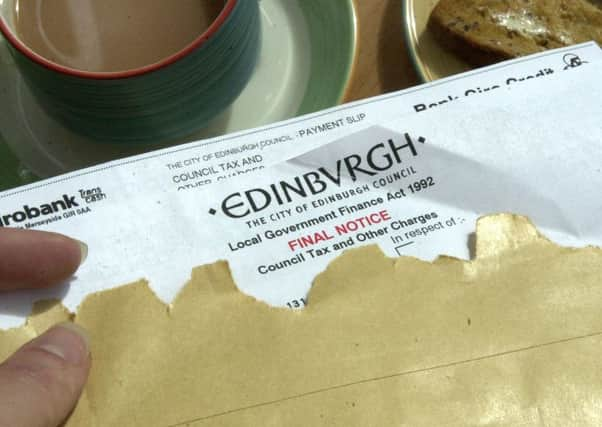Leader: Both sides need to talk on council finance


Not only has a rebel group of councils broken away from the long-standing Convention of Scottish Local Authorities (COSLA) in frustration over the continuing pressure on town hall budgets, but it is now demanding tax raising powers to help it fight a new wave of budget constraints. The breakaway Scottish Local Government Partnership (SLGP) comprises some of the largest local authorities in the country – Aberdeen, Glasgow, Renfrewshire and South Lanarkshire. It says councils should have power to levy business rates and a tourism tax, and that they should be handed control over air passenger duty.
The move comes as MSPs unveil plans for a Holyrood inquiry into the impact of fresh funding spending reductions. SLGP’s concerns will have been heightened by last week’s report from the Fraser of Allander Institute that some public services in Scotland could be facing budget cuts of almost a fifth over the next four years and warned that the grant given to councils could be cut by £1 billion. Cuts in local government services, it added, were likely to become increasingly apparent in the years ahead unless there was “radical reform”.
Advertisement
Hide AdAdvertisement
Hide AdThe idea of conceding more financial powers to local authorities will appeal too many who favour a greater degree of local control over council functions and services. However, the Scottish government has a statutory responsibility to consult all 32 councils on the terms of the local government finance settlement and it will have been loath to abandon a policy which it believes has had strong appeal among voters. It has provided much needed financial relief – particularly to vulnerable groups, including pensioners. According to SNP figures the freeze has saved the average household £1,500 in total on a band D bill. By contrast, between 2007-08 and 2015-16, council tax has increased by 12 per cent in England.
The administration also argues that local authorities have received an extra £70 million a year since 2008-09 to put the council tax freeze in place, while independent analysis has shown that the freeze has been more than fully funded by the central administration.
How might voters react to local authorities being given tax raising powers? It opens the prospect of conflicting household tax rates and supplementary imposts such as a tourist tax being imposed in different parts of the country. And there is a danger that voters in some areas could find themselves at the mercy of small but militant town hall minorities opposed to budget constraints of any sort raising council tax rates to excessive levels.
Without firm and watertight limits attached to the use of such powers, many will fear becoming victims of competing tax demands from different parts of government. It is certainly the case that local authorities have had to bear the brunt of spending cuts for higher spending on infrastructure, health and welfare. But both sides now need to talk – and ensure that any changes proposed will have public compliance.